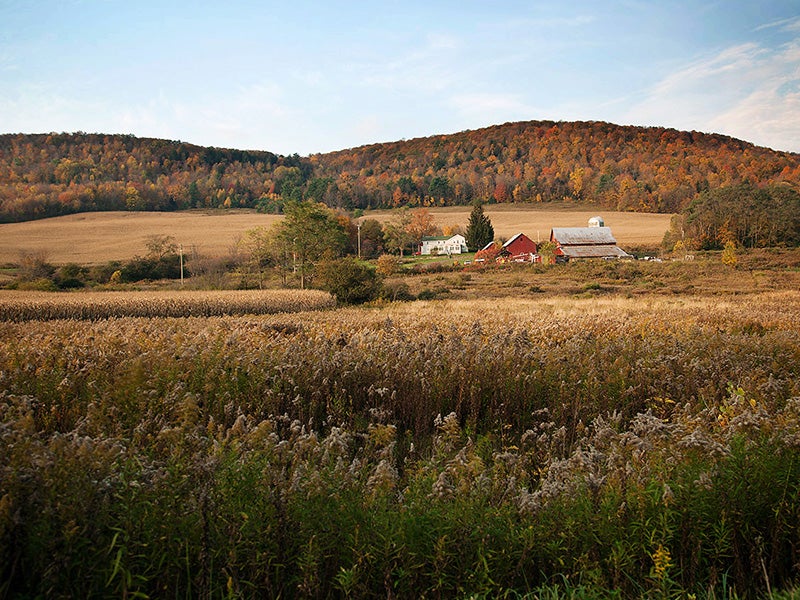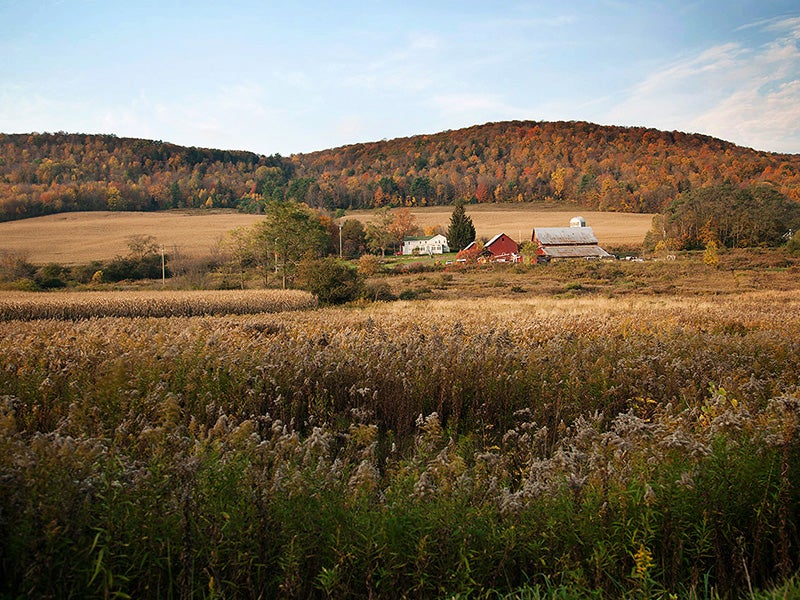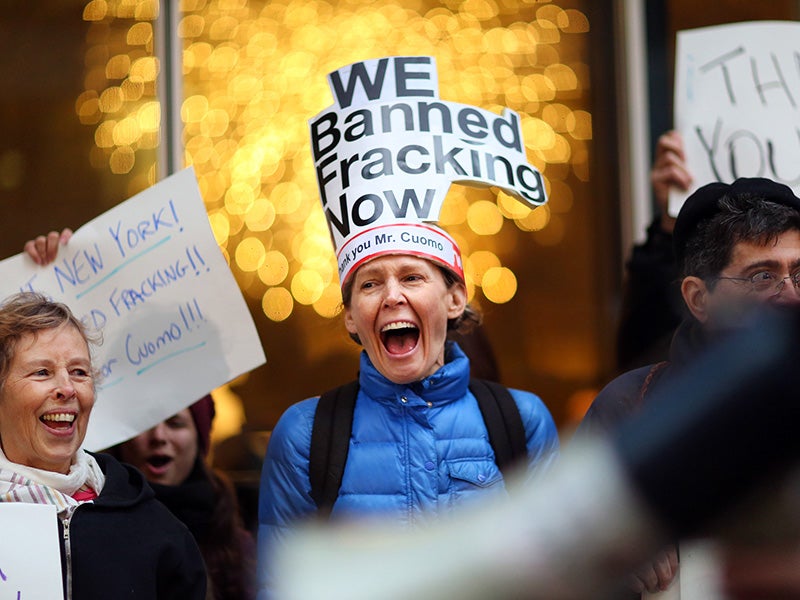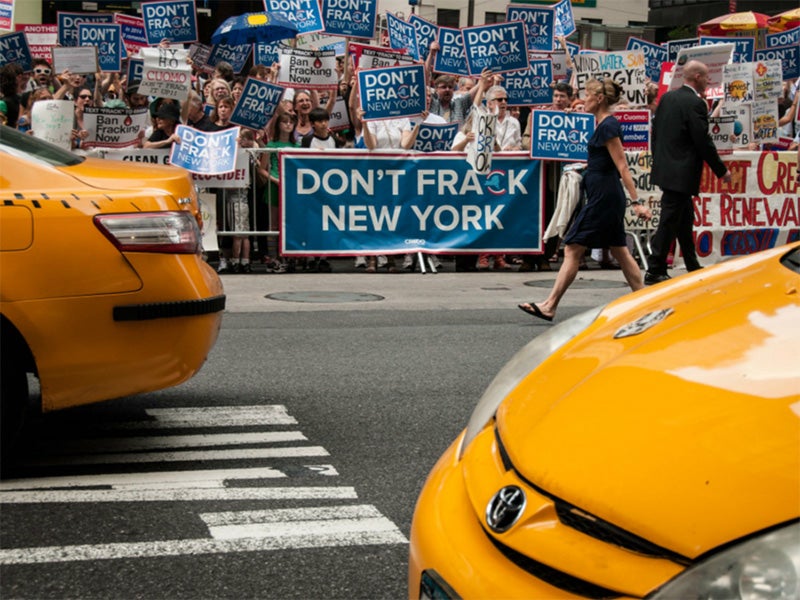Fending Off Fracking In Dryden, NY
A town in upstate New York fought to save its way of life—and won. Earthjustice represented the Town of Dryden in a precedent-setting case that has major implications for the rest of the country as localities around the nation take heart from Dryden’s fighting spirit.
Case Overview
It all started with a billionaire fossil fuel mogul trying to run roughshod over a small town.
After the bipartisan town board in Dryden, NY (pop: 14,500) voted unanimously to clarify that oil and gas activities—including fracking—were not permitted within the town’s borders, the Anschutz Exploration Corporation, owned by Philip Anschutz (net worth: $7.5 billion), sued Dryden in an attempt to override local zoning. Earthjustice is representing Dryden in its effort to keep fossil fuel development at bay.
In February 2012, a New York State judge ruled in favor of the Town of Dryden. Anschutz appealed that decision in May 2012, but withdrew from the litigation later that year. A U.S. subsidiary of Norse Energy, a Norwegian Company, replaced Anschutz in November 2012 but filed for bankruptcy one month later. In May 2013, a four-judge intermediate appellate court ruled unanimously in favor of the Town of Dryden, its second court victory against the fossil fuel industry.
Earthjustice and the Town of Dryden then went into a third round of litigation, with the case going up to New York’s highest court, as Norse was liquidating its assets and the bankruptcy Trustee pursuing the final appeal.
On June 30, 2014, the New York Court of Appeals ruled that the towns of Dryden and Middlefield can use local zoning laws to ban heavy industry, including oil and gas operations, within municipal borders. The decision gives legal backing to the more than 170 New York municipalities that have passed measures to protect residents from the impacts of the controversial oil and gas development technique. The news also gives a green light to dozens of other New York towns that have been waiting for the Court of Appeals’ decision to pass their own local ban.

Case Updates
Case page created on December 20, 2012.


